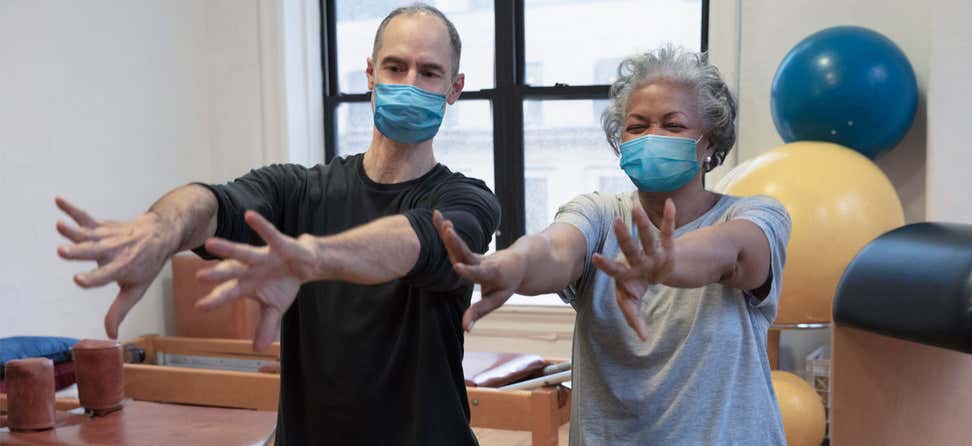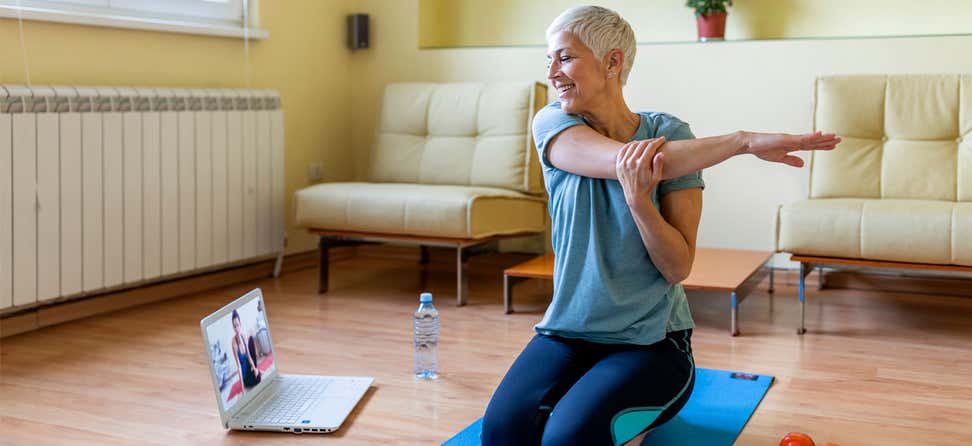Key Takeaways
Provide older adults who are at risk for falls with a personalized behavior change intervention.
The FallsTalk behavioral intervention can be used with diverse older adults in a wide variety of settings.
Developed by Brookside Research & Development with support from the National Institute on Aging of the National Institutes of Health, FallsTalk is a one to six-month personalized behavior change intervention for individuals at risk for falls. The intervention program requires: a) evidence-based fall risk screening and a standardized FallsTalk interview which creates various customized intervention components and reports; b) daily log training; c) telephone check-ins; d) follow-up interview and log review. The intervention can be provided by a single staff member or a team of 1-3 trained Facilitators. FallsTalk is delivered in two one-on-one in-person or remote sessions and three or more telephone check-in calls, utilizing easy-to-use software (provided). Additionally, FallsTalk software components can be used to establish the foundation for an organization’s falls prevention efforts, or to enhance existing services. The included software serves as an organizational infrastructure, eliminating duplication of effort, increasing staff communication and promoting coordination of screening, referral and intervention services within and between entities.
Note: Track health promotion program guidance during COVID-19 regularly for updates to program implementation and training options. Programs traditionally implemented in-person may be temporarily allowable by telephone or online.
- Target audience: Adults 50+ who have fallen OR are experiencing regular loss of balance AND are at risk for falls OR express concern about falls. The FallsTalk behavioral intervention can be used with diverse older adults in a wide variety of settings. Free screening training and referral software is provided for one support person for each trained Facilitator.
- Health outcomes:
- Improve recognition of fall threats (personal traits and circumstances that could cause a fall) and self-efficacy
- Increase falls prevention behaviors and falls self-management skills
- Prevent participant falls and reduce fall risk
- Delivered by: Trained lay leader/facilitator
- Program type: Individual
- Format: In-person at home, in-person in community, telephone, or online (video conference)
- Length: 1 to 5 Sessions including: a) evidence-based fall risk screening and a standardized FallsTalk interview (10-30 minutes); b) daily log training (5-15 minutes); c) a minimum of three telephone check-ins (2-10 minutes each); d) follow-up interview and log review (10-30 minutes). Approximately 60-90 minutes of contact time are required to provide a complete FallsTalk behavioral intervention.
- Training: In-person training or interactive webinar. Note: While FallsTalk has always has remote options, COVID has changed how Facilitators work. To address these challenges, new tools are available in v.1.7.6. If you haven’t upgraded, email Dr. Victoria Panzer. Licensed users are eligible for free upgrades and an update training webinar.
- Professional required: Yes, one or two days training may be completed separately or at one time (see course outline on website). Interactive participant-paced webinar training is available (8-12, 45-75 min. sessions). In-person training is offered at various sites or can be delivered on-site for groups by custom arrangement.
- Accessibility adaptations available: Yes, FallsTalk is especially appropriate for mobility-impaired, house bound, group-shy or temporarily chair/bed-bound participants. Development of FallsTalk for delivery by Caregivers or Care Partners is in the final stages of development.
- Cultural adaptations available: Yes, FallsTalk is a person-centered approach. Facilitators who have experience working with individuals from different cultures can easily provide a culturally appropriate intervention.
- Available in languages other than English: No
- Topic(s):
- Falls Prevention
- Contact: Dr. Victoria Panzer









